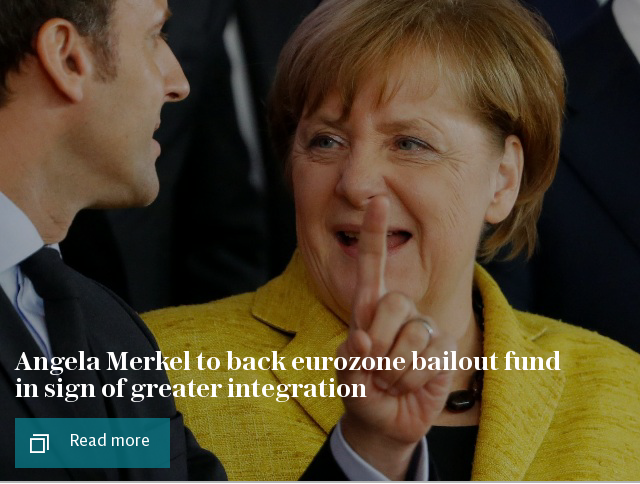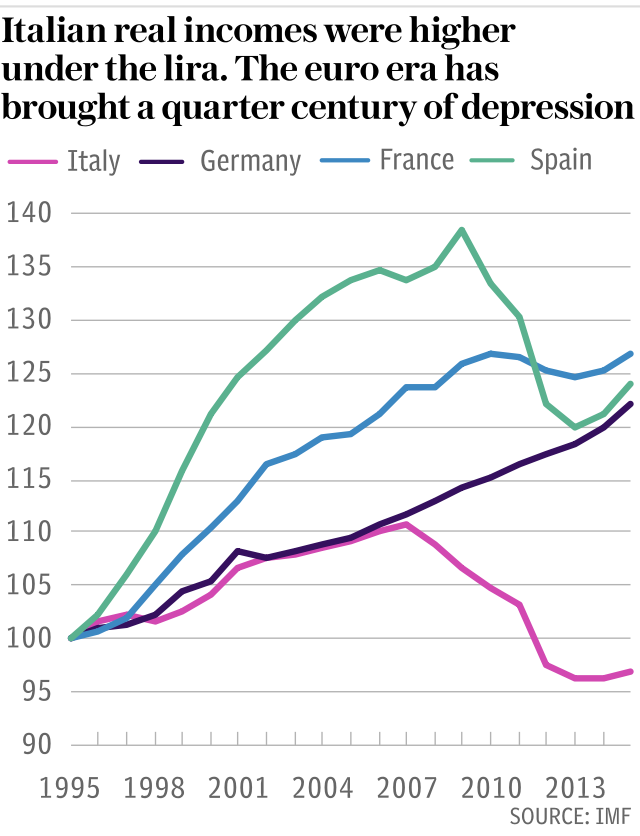Euro 'irreversible' says German finance head Scholz amid fears of Italy exit

German finance minister Olaf Scholz said the euro is "irreversible", echoing comments made by European Central Bank Governor Mario Draghi earlier this month in response to growing anti-euro sentiment in Italy.
In an interview with German newspaper Rheinische Post to be published tomorrow morning, Mr Scholz said the euro "secures our common future in Europe".
He said there was "a new momentum in Europe and this is thanks to President Macron", referring to the deal struck between France and Germany earlier this week to set up a common budget for the currency bloc, a proposal championed by Emmanuel Macron.
The move, which follows months of wrangling between both sides over the scope of the budget, marked a decisive step towards further integration of the European Union.
Mr Macron, the French president, said it would have a "real budget with annual revenues and spending", while his German counterpart Angela Merkel argued that economic policies within the EU must converge for the bloc's economic and monetary union to remain intact.

Mr Scholz said: “With the Meseberg agreements we are further building the house of Europe. It contains a sealed roof that withstands future storms and rainy days".
His comments come just days after similar statements were made by Mr Draghi amid growing concern that Italy's new government may seek to pull the country out of the euro.
Although Italian finance minister Giovanni Tria has recently said there is no plan for such a move, there have been calls from within both the Lega and the Five Star parties to seek a referendum on the issue.
Lega leader Matteo Salvini has called the euro a "German currency" and said he was "preparing an emergency exit for the Italians".

Italy is not alone in its aversion to greater integration within the EU, and talk of a common European budget has in the past caused many member states to hit out at what they see as Franco-German power-broking.
Earlier this year, finance ministers from eight member states issued a joint statement in response to proposals for centralised fiscal powers, saying any plans must be "inclusive" and "discussed and decided by all".
The ministers, from countries including Ireland and the Netherlands, said there must be "real value added, not far-reaching" new powers, when it came to deepening ties.

 Yahoo Finance
Yahoo Finance 